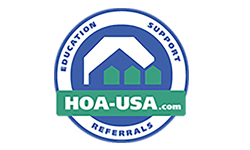The HOA Annual Meeting is the event when the board members and homeowners of a HOA gather to discuss the most important things that concern the community, as well as the highlights of the previous year.
Practically all homeowner associations are incorporated as non-profit corporations and are considered legal entities. Therefore state laws as well as the association’s governing documents apply. This includes statutes that are specific to all non-profit corporations as well as state laws that apply only to homeowner associations and/or condominiums. The association’s governing documents primarily include the covenants and by-laws.
These laws and governing documents are important because they often address the following issues:
- When the annual meeting is held
- Proper notice of the annual meeting
- Quorum requirements
- Proxy voting requirements
- Nomination and voting requirements for directors and officers
There are three important reasons for homeowners to attend this once a year meeting:
- The election of directors will determine the leadership of the association.
- The budget will determine the amount of the assessment that each member will be required to pay in the upcoming budget year.
- This is the most likely time when amendments to the governing documents can be considered, resolutions introduced or changes made to rules.
The meeting should be conducted according to Robert’s Rules of Order Newly Revised.
Association members should receive a package of information prior to the meeting. It is important to review the minutes of the previous meeting, the proposed budget and related financial statements, the proposed slate of nominees for election and any other proposals requiring member votes.
Many associations struggle with low attendance at the annual meeting and some even have difficulty obtaining a quorum in order to conduct business. The downside of low attendance is the potential for status quo and for a few to govern unchallenged. Many boards prefer to avoid the neighbor backlash associated with budget increases. Therefore, reserves are often not properly funded and the problem is left to a future board to struggle with special assessments or deferment of maintenance and repairs. Sooner or later these issues will rise to a magnitude that it becomes more difficult to find volunteers to serve and ultimately property values will be affected.
Don’t be the association member who one day asks: “how did our community get in such bad shape?”. At a minimum, stay informed and attend your association’s annual meeting. It’s in your best interest to protect what is likely your greatest investment and the benefits of living in a well governed community.

